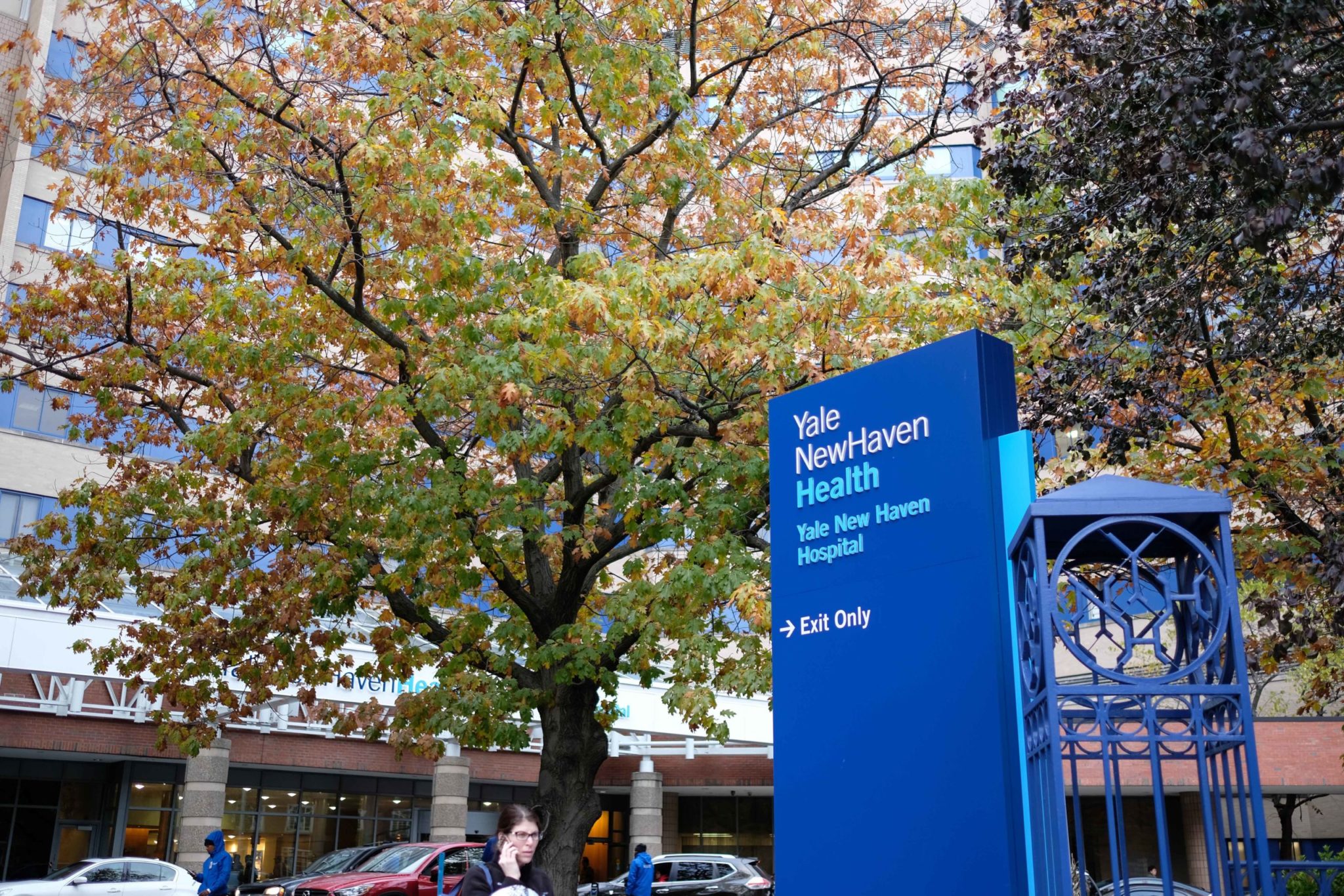YNHH hospitalized COVID-19 patients double, 90 percent unvaccinated
Yale New Haven Hospital revealed that 90 percent of hospitalized COVID-19 patients did not receive the COVID-19 vaccine.

Yale Daily News
Around 90 percent of patients who were treated at Yale New Haven Hospital for COVID-19 over the past few months were unvaccinated.
This statistic was announced at a recent briefing which addressed the pandemic’s impact on the community and at YNHH. Since the start of the academic year, the number of COVID-19 patients admitted to YNHH has remained roughly the same, although case numbers have more than doubled in recent weeks. Given that the vast majority of hospitalized COVID-19 patients were unvaccinated, Yale public health experts emphasized the importance of immunizing every individual to prevent severe COVID-19 symptoms that may lead to hospitalization.
“The majority of our patients that are being admitted because of COVID symptoms are unvaccinated,” Thomas Balcezak, chief clinical officer for the Yale New Haven Health system, said in a Sunday interview. “I have colleagues in other parts of the state that are seeing a much higher percentage of vaccinated people being admitted for COVID, but for us, it’s been around 90 percent.”
Balcezak explained that at the start of the school year in September, the hospital saw around 30 to 40 cases per day. This number stayed in the range of 30 to 50 daily patients throughout the fall season, and there was never really a “large spike” in these numbers, Balcezak said.
However, within the last couple of weeks, Balcezak observed “an uptick,” when he noticed “about a doubling of cases [per day] to 110.”
Chief Medical Officer of YNHH Alan Friedman noted that Connecticut’s population is more than 72 percent vaccinated and that vaccines are “excellent in preventing COVID-19 infection.” However, with the holiday season fast approaching, he anticipates an increase in cases given that people tend to travel and gather in close proximity indoors.
Balcezak highlighted the importance of getting vaccinated and of receiving booster shots.
“There’s no question that the cases in people that are fully vaccinated are substantially more benign or mild,” Balcezak said. “That doesn’t mean that you’re completely protected … but your chances of avoiding hospitalization is much [more], your chance of avoiding the ICU is much much [more] and your chance of death is almost zero.”
Responding to the recent emergence of the Omicron COVID-19 variant, Richard Martinello, medical director for infection prevention at YNHH, noted that professionals should have more information on the variant and its potential impact on the community within the next few days.
“What I am concerned about is how it has been identified in different countries of the world,” Martinello said. “That does make me concerned that we are going to see much more widespread infection related to this variant. But … there’s still much more we don’t know than what we do know at this point. But absolutely, we should be very concerned about it.”
With temperatures falling and the winter season setting in, Martinello also shared concerns about how preparations for the holidays and increased indoor activity may facilitate the spread of the virus, especially with the novel Omicron variant and highly transmissible Delta variant.
Friedman emphasized the need to listen to medical professionals during this period of uncertainty.
“We as a community, as a profession and certainly as a hospital, we rely on science and public health to help us navigate these challenges,” Friedman said. “I have no doubt that we will be able to create new strategies and effective therapies if we need to.”
According to the Centers for Disease Control and Prevention COVID-19 data tracker, as of Nov. 30, there are 1,472 COVID-19 cases in New Haven.







